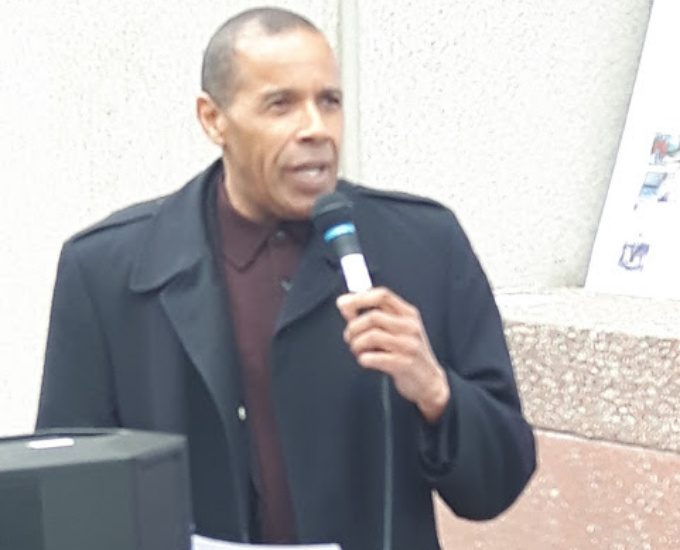
KJIPUKTUK (Halifax) – If you have been hurt by racism, either physically or mentally, and feel you have been wronged by the Nova Scotia Human Rights Commission (NSHRC), you are not alone. There are many people like you across Nova Scotia.
The NSHRC is a most powerful entity, but changes are warranted and must be made. Based on one’s personal treatment afforded by the NSHRC, one may want to join forces with others to secure necessary change.
Millions of humans the world over support human rights on this planet called Earth. Human rights include social rights, economic rights, ethnic rights, political rights, religious rights, civil liberties, right to life, employment rights and physical safety, etc.
In Nova Scotia, we African Nova Scotians fought for the NSHRC. The mandate of this government agency is said to be “a commitment to actively engage and work with all Nova Scotians and our diverse communities to address issues of discrimination by effectively: advancing equity and dignity, fostering positive and respectful relationships, and protecting human rights.”
Over the years, it seems the NSHRC has fallen short of those objectives.
During the seventies officers of the NSHRC seemed to reflect the diversity of the Nova Scotia community. Now not so much. At that time businesses, employers, governments and individuals seemed almost afraid of the Commission. Now not so much. When George McCurty was Executive Director of the NSHRC, attitudes started to change, mutual respect started to develop and human dignity seemed enhanced. Now not so much.
The legislation governing the NSHRC must be updated to give it more power to act in taking a major bite out of racism and injustice. Equally, members of the Commission must receive updated training on the application of the various pieces of legislation.
Human rights legislation must deter in the strictest way possible in order to send a message, promote justice, equality, human dignity, compassion and respect. Cases before the commission should never be dismissed on a whim. If individuals responsible for sexual assault and murder are held responsible years after their crimes, them human rights violators should also be held to account.
Many African Nova Scotians have expressed that the NSHRC has turns a blind eye to the physical, emotional pain and suffering they have endured and this only serves to add insult to injury while increasing pain and suffering
Over the years the NSHRC itself discriminated against some of its clients (African Nova Scotians) due to internal bias, inaction and in their own words “dropping the ball.”
Heavy criticism can be leveled against the NSHRC and its apparent limited knowledge of the historical racism that African Nova Scotians have endured. This apparent lack of knowledge and awareness makes way for insensitivity and therefore bias.
It seems that only 10% of the complaints brought to the commission are actually investigated and even fewer make it to a Board of Inquiry (Tribunal), although white people seem to stand a better chance, and in at least one case this stage seems to have been skipped entirely. Why? This might explain why racism and hate is on the increase and not on a decline.
Many African Nova Scotians and others are forced to wait long periods of time only to have their complaints dismissed. It is kind of like waiting for five hours at a local hospital only to be told your condition does not warrant being seen by a doctor.
The Nova Scotia Human Rights Commission may benefit from additional resources, which could come from defunding police.
I believe it is fair to say the NSHRC is in need of a major shake up, if it is to make a difference in the gigantic battle against racism, hate and discrimination.
I believe even the United Nations is more aware of racism and hate in Nova Scotia than the NSHRC.
For example, in August 2017, a United Nations working group raised serious concerns regarding ongoing systemic discrimination faced by people of African descent in Nova Scotia. The UN Working Group of Experts on People of African Descent presented its report to the UN Human Rights Council on September 25, 2017, in Geneva.
The working group stated that it was deeply concerned by the structural racism that lies at the core of many Canadian institutions and the systemic anti-Black racism that continues to have a negative impact on the human rights situation of African Canadians. Canada’s history of enslavement, racial segregation and marginalization of African Canadians has left a legacy of anti-Black racism, which must be addressed in partnership with the affected communities. African Nova Scotians make up the second largest racially visible group in Nova Scotia.
The group looked at human rights, justice, employment, health and other areas, the report also recognized efforts in Nova Scotia to improve the situation of people of African descent. For instance, it welcomed the restorative inquiry for the Nova Scotia Home for Coloured Children, as a model of collaborative and restorative approaches in addressing issues affecting people of African descent.
For African Nova Scotians seeking redress and positive change, I believe the following steps are necessary:
1) Amend and strengthen the Human Rights Act
2) Most Intake workers at the HRC should be people of colour, people with disabilities and women.
3) Community consultation and information sessions should be proactively engaged
4) The period in which to file a complaint must be changed to at least three years, etc.
BLACK HUMAN RIGHTS MATTER
See also: Raymond Sheppard: The Nova Scotia Human Rights Commission must do better
With a special thanks to our generous donors who make publication of the Nova Scotia Advocate possible.
Subscribe to the Nova Scotia Advocate weekly digest and never miss an article again. It’s free!




Agree strongly with this article. Some independent body should look into the inner structure of the NSHRC to see why they are falling short. There could be multiple reasons…I dealt with the Canadian Human Rights Commission five years ago and although I absolutely had a valid complaint against my employer I went through the CHRC investigative stage but was denied a tribunal. I appealed it but learned what some of the issues were the hard way….here’s just a few…1) the CHRC investigator who was assigned my file was not trained in what my disability was. She knew nothing about it, so how could she possibly ask the right questions to understand how my complaint was valid? 2) My employer, the RCMP, responded to the CHRC by continually “telling” them not to get involved. So I was up against two federal agencies. And when a decision was finally made, my employer somehow found out about it weeks before I did even though I already knew something funny was going on between them. 3) Retired RCMP members work on the board of commissioners for the CHRC. That in itself was a conflict of interest. One retired officer who I knew well told me how badly short-staffed the CHRC was and that there were so many complaints in front of them (he said “multiple piles of complaints”) that they were dismissing valid complaints and only accepting the ones that were more obvious/serious. 4) When I appealed my case the judge who presided was not knowledgeable about Human Rights and my disability, so he automatically gave ‘deference’ to the CHRC, instead of being able to consider my side. I believe the same kind of issues could and do apply to race or any of the prohibited grounds. ie, lack of employee training, conflicts of interest/unbiased commissioners, under staffing, etc.
If people want change we should all band together and demand change of the NSHRC. Only then will change come about. Until then, the NSHRC will hide behind it’s political veil. They need to be publicly called out for their short comings!!! In my research I was pleasantly surprised to see how ‘on board’ the Ontario Human Rights Commission was. They are well organized and very active in seeking out injustices against the prohibited grounds. The other provinces should take a look at how the OHRC operates and learn from them.
As I was reading through this article above, I could not help but make a connection. I have a case that is now before the NSHRC and the process of dealing with them is relatable. First and foremost they were unsure if I had a case. Secondly, once I established that it was within their regulated mandate, things started moving rather SLOW! (I had previous experience/exposure to the process(es) through the agency.) I provided them with all the documentation and little work was required of the agency. Prior to engaging the process I had a lawyer involved and we put the whole case together for presentation to them. Our summation(6 pages) shows without prejudice the unfair treatment was directed toward myself. Note: They initially thought it was a federal case BECAUSE they knew very little in how to deal with this organization. They appeared to be uncomfortable(lack basic understanding with the issues involved) and therefore things are moving at a snail pace! It has been 30 months since my initial application was filed with them. There is no investigative work to be done on my file – so why the delay??? Yes, I fully understand the process(es) here, including the internal mechanisms that has to take place. One can only conclude there is a serious problem within the agency that creates such delays and etc.